Photographs: Paresh Gandhi/Rediff.com Jairam Ramesh
Union Environment Minister Jairam Ramesh wrote a letter to Members of Parliament on the Cancun climate conference outcome, explaining how the Indian delegation pleaded with the international body and why it was not a 'sell out' as was alleged by the opposition political parties to describe his stance.
Here is the entire text of his letter:
As you know, I have just returned from the UN Climate Change Conference at Cancun. As I have mentioned to you in the past, our accountability is to Parliament and I intend to keep Parliament fully informed on our climate change policies and negotiating positions.
Hence I want to take this opportunity to brief you on the major developments at Cancun and their implications for India.
I. Major elements of the Cancun Agreements
All parties agreed on a set of decisions, known as the 'Cancun Agreements', for further discussion, on the two tracks of the negotiation; namely, the Long-term Cooperative Action (LCA) under the UN Framework Convention on Climate Change (UNFCCC) and its Kyoto Protocol (KP).
The texts of the agreements are available on the homepage of the UNFCCC www.unfccc.int. The broad highlights of the agreed texts are as follows:
. . .
Ramesh reveals how India pleaded at Cancun
Photographs: Reuters
1. Shared vision for long-term cooperative action: This was a matter of intense debate, with the Least Developed Countries (LDCs) and Association of Small Island States (AOSIS) countries pushing for much more ambitious targets.
In the end, a goal of restricting temperature rise to below 2 degrees Celsius, with a provision for review at a subsequent date was agreed upon. Significantly, the agreed final text makes no mention of either quantitative targets for emission reduction by 2050 or global peaking year, thus protecting the interests of developing countries.
Largely due to India's efforts, references to 'equity' and 'equitable access to sustainable development' were included in this section as the basis of working towards this goal.
2. Adaptation: A Cancun Adaptation Framework was agreed upon. It exhorts developing countries to prepare and implement national adaptation plans and at the same time, calls upon developed countries to provide finance, technology and capacity building support for the same.
It also decides to establish an Adaptation Committee to promote implementation of adaptation actions.
. . .
Ramesh reveals how India pleaded at Cancun
3. Mitigation commitments of developed countries: Under the Cancun Agreements, developed countries, including those that are parties to Kyoto Protocol or otherwise, will list their economy wide emission reduction targets for the period from 2013 onwards, in a UNFCCC document and implement the targets according to agreed rules.
Developed countries have also agreed to increase the ambition of their targets, and enhance reporting of their mitigation targets, including their commitments relating to provision of financing, technology and capacity building support to developing countries.
For the first time, and on India's insistence, the agreed text calls for an 'international assessment and review' of developed country emission reduction targets, which means that there will be mandatory in-depth review of implementation of the commitments by developed countries including assessments by experts and consultations with developing countries.
. . .
Ramesh reveals how India pleaded at Cancun
Photographs: Reuters
4. Kyoto Protocol: At the same time, the parties to Kyoto Protocol have agreed to continue to work towards finalising their targets for the second commitment period (post-2012 period) with the aim of ensuring that there is no gap between the first and second commitment periods of the Protocol.
5. Mitigation actions by developing countries: Under the agreements, the developing countries will also list their nationally appropriate mitigation actions (not mitigation commitments or targets) in a document under the Convention, and implement them with the financial, technological and capacity building support provided by developed countries for such actions.
The text also calls for 'international consultation and analysis' of developing country actions in a manner that is non-intrusive, non-punitive, facilitative and respectful of national sovereignty.
This will apply to nationally determined actions, implemented on a voluntary basis in pursuance of the domestic mitigation goal, and reported through the official national communication of the country concerned.
This was a key area where India played a crucial role in mediating an agreement that was acceptable to both developed and developing countries.
. . .
Ramesh reveals how India pleaded at Cancun
Photographs: Reuters
6. Forestry: The agreement encourages developing countries to undertake actions on reducing emissions from deforestation and forest degradation, conservation of forest stocks, and sustainable management of forests (the latter being most relevant to India, where we are actually increasing our forest stock through sustainable forestry).
It calls upon developing countries to prepare national strategies/plans for the same. The agreement also asks for full and effective participation of indigenous people and local communities in developing and implementing these strategies.
An assessment of financial options to support these actions is also to be worked out.
7. Response measures and trade: This urges developed countries to ensure that their climate actions avoid negative consequences on developing countries.
On unilateral trade measures, it notes that measures taken to combat climate change, including unilateral ones, should not constitute a means of arbitrary or unjustifiable discrimination or a disguised restriction on international trade.
Although the language is not quite perfect from our perspective, this seeks to address an important concern of India and other developing countries that climate change should not be used as an excuse to impose unilateral trade measures on developing countries.
. . .
Ramesh reveals how India pleaded at Cancun
Photographs: Reuters
8. Finance: It calls upon developed countries to provide 'fast start finance' of $30 billion in 2010-12 to developing countries and submit transparent information regarding the provision of these resources.
The Agreements also recognise the need for providing long-term finance by the developed countries and inscribe their commitment of raising $100 billion per year by 2020 for supporting adaptation and mitigation actions in developing countries.
Most importantly, the parties have decided on the establishment of a Green Climate Fund as the operating entity of the financial mechanism. This was a long-pending demand of developing countries and represents one of the most notable achievements, following persistent and protracted negotiations on this issue.
The fund is to be governed by a board of 24 members, equally represented from developed and developing countries. The World Bank will be the trustee of the fund for the initial three years when the fund is set up and operationalised.
. . .
Ramesh reveals how India pleaded at Cancun
Photographs: Reuters
9. Technology development and transfer: The agreement decides to establish a technology mechanism for supporting research, development, demonstration, deployment, diffusion and transfer of technology in the area of mitigation and adaptation.
The mechanism will be governed by a technology executive committee with 20 members: nine from developed countries, and eleven from developing countries, and its functions will be implemented by a Climate Technology Centre and Network.
India was the key player in drafting the text on the technology mechanism.
II. India's key contributions at Cancun
India made five specific contributions to the final agreed text, in addition to its contribution to the process over the entire period of the conference.
. . .
Ramesh reveals how India pleaded at Cancun
Photographs: Reuters
1. India ensured that for the first time the phrase 'equitable access to sustainable development' found mention in the shared vision text.
This is critical as climate change is largely a problem caused by historical emissions, and late developers like India need this equitable access to address their development priorities and to eradicate poverty.
The phrase 'equitable access to sustainable development' is superior to the phrase 'equitable access to carbon space' which connotes a fundamental 'right to pollute' that is seen today as negative and insensitive to the global challenge of climate change.
2. India ensured that the mention of 2015 as a peaking year and the mention of a quantitative target of emissions reduction by 2050 did not find mention in the final text.
This is important as such conditionalities could have imposed emission reduction commitments on developing countries like India too early and could compromise their development prospects.
. . .
Ramesh reveals how India pleaded at Cancun
Photographs: Reuters
3. India's detailed formulation on international consultation and analysis (ICA) of developing country mitigation actions in a manner that is non-intrusive, non-punitive and respectful of national sovereignty was the key input that broke an important deadlock and helped achieve progress on issues relating to mitigation.
4. It was India that ensured that for the first time, developed country mitigation actions will be subject to 'international assessment and review', which means that experts, including those from developing countries, will have the right to review whether developed countries are living up to their commitments.
5. India's formulation on technology development and transfer through a technology executive committee and climate technology centre and networks, formed a critical component of the final text, and a major win for developing countries.
. . .
Ramesh reveals how India pleaded at Cancun
Photographs: Reuters
6. Due to India's insistent efforts, the parties avoided a decision at Cancun on the phrase 'legally binding agreement'. Instead, the Ad Hoc Working Group has been requested to 'continue discussing legal options', with the aim to reach consensus, if possible, on this issue by the next Conference of Parties.
III. India's major outreach activities at Cancun
In addition to making major contributions to the text, India was visibly and constructively engaged in the entire process at Cancun, ensuring that we spoke up for our developing country partners, showcased our proactive voluntary actions, pushed the envelope on the intellectual debate, and bridged the gaps between parties.
Some significant highlights of India's outreach efforts at Cancun included the following:
1. India hosted a major side event on the importance of equity and equitable access in the climate change negotiations. This event was attended to by a full house of experts, negotiators and civil society, and showcased India's leadership position on this key issue.
. . .
Ramesh reveals how India pleaded at Cancun
Photographs: Reuters
2. India hosted a press briefing on India's proactive domestic actions on addressing climate change. This was very well attended with international media from all major countries covering the event.
Here I highlighted the (i) National Action Plan on Climate Change; (ii) Indian Network for Comprehensive Climate Change Assessment; (iii) Expert Group on Low-Carbon Strategy for Inclusive Growth (iv) activities being undertaken by various state governments; and (v) our regional initiatives in SAARC and with countries like Nepal, Bangladesh and Maldives.
3. India acted as the coordinator of the 'BASIC' group comprising Brazil, South Africa, India and China throughout the Conference, and will host the next meeting of BASIC Ministers in early 2011.
Although the BASIC countries had different approaches on some issues, the group stayed united until the very end, and jointly welcomed the final agreements.
. . .
Ramesh reveals how India pleaded at Cancun
Photographs: Reuters
4. India proactively reached out to other developing countries. It offered a scholarship programme for capacity building to the Small Island Developing States (SIDS).
India spoke for the Least Developed Countries (LDCs) and Africa, calling on developed countries to immediately disburse the promised 'fast start finance', even as India had voluntarily declared at Copenhagen that it will forego its claim to this money in favour of LDCs. India also hosted a lunch for the SAARC Ministers where shared concerns were discussed.
5. India conducted bilateral meetings with various countries and groups where it discussed negotiating positions, tried to bridge gaps and identified areas for broader bilateral cooperation.
These included meetings with Japan, Germany, the United States of America, the United Kingdom, Australia, France, Qatar, Mexico and groups like the European Union, Africa, Association of Small Island States (AOSIS) and LDCs.
. . .
Ramesh reveals how India pleaded at Cancun
Photographs: Reuters
6. India also served as an informal ally and facilitator for the host Mexico in reaching out to countries to promote understanding of positions and reach an agreement.
7. I also attended a Public-Private Partnership Breakfast meeting hosted by the Mexican President where I called for the establishment of a CGIAR-type network of technology delivery institutions in the area of climate change.
CGIAR is the Consultative Group on International Agricultural Research, and I specifically mentioned how India's high-yielding wheat varieties in the 1960s came from one of the CGIAR institutions in Mexico called CIMMYT (International Maize and Wheat Improvement Center).
This suggestion was enthusiastically endorsed by Professor Mario Molina, the 1995 Nobel Laureate in environmental chemistry and also by the President of Mexico.
. . .
Ramesh reveals how India pleaded at Cancun
Photographs: Reuters
IV. The issue of legally-binding commitments
At the high-level segment, I made a detailed statement which highlighted India's efforts on addressing climate change. In this statement I also said that 'all countries must take on binding commitments in an appropriate legal form'.
This statement has formed the basis for much discussion at home. So I feel that I must clarify what I intended to convey and the context in which this statement was made.
The immediate context of this statement was that there appeared to be a view being pushed by a majority of developing and developed countries at Cancun that all countries must agree to a legally-binding agreement.
Most countries, including our BASIC partners Brazil and South Africa, our developing country partners in AOSIS, LDCs, Africa, and four of our SAARC partners (Bangladesh, Maldives, Nepal and Bhutan) shared this view.
. . .
Ramesh reveals how India pleaded at Cancun
Photographs: Reuters
The only countries opposing this were the United States, China, India, Philippines, Bolivia, Cuba, Nicaragua, Saudi Arabia and some others. It was therefore important for India to demonstrate that it was not completely oblivious and insensitive to the views and opinions of a large section of the global community.
It is important that a few things are understood about my statement.
First, I have called for commitments in an 'appropriate legal form' and not a legally-binding commitment. This is an important distinction.
My statement leaves open the need for differentiation between Annex I (developed) countries and non Annex I (developing) countries.
Annex I commitments could be legally binding with penalties. Non Annex I actions could be purely voluntary and without penalties. Moreover, the reference to an 'appropriate legal form' is a very broad one.
. . .
Ramesh reveals how India pleaded at Cancun
Photographs: Reuters
Indeed even decisions of the Conference of Parties (COP) to the UNFCCC are of an appropriate legal form. Similarly, commitments that our government makes to our Parliament are also, in our view, of an appropriate legal form.
In fact, if you recall I had written to you way back on October 5, 2009 where I had mentioned the idea of introducing domestic legislation that will not contain explicit emission reduction targets but will have implicit performance targets for mitigation and adaptation (such as mandatory fuel efficiency standards by 2011, mandatory energy conservation-compliant building codes by 2012, 20 per cent contribution of renewables to India's energy mix by 2030 etc.).
Many countries like Brazil and Mexico already have such laws and others like China and South Africa are also considering such legislation.
. . .
Ramesh reveals how India pleaded at Cancun
Photographs: Reuters
Second, contrary to some misquoted references in the domestic media, I did not make any commitment on India undertaking absolute emission cuts.
India has made it very clear that while it will undertake voluntary mitigation actions, including reducing the emissions intensity of its GDP by 20-25% by 2020 on a 2005 reference year, India will not take on any emission cuts or agree to any peaking year for its emissions. There is no change in this position.
Third, as I have clarified repeatedly, a legally-binding agreement is not acceptable to India at this stage.
I made it clear that unless we have clarity on (a) what the substance of such an agreement is, (b) what the penalties for non-compliance are, and (c) what the system for monitoring is, we will not be able to even consider a legally-binding agreement. This position remains unchanged.
. . .
Ramesh reveals how India pleaded at Cancun
Photographs: Reuters
As I have stated, due to India's efforts, the phrase 'legally-binding agreement' did not find mention in the text. Instead, a loose reference to 'continue discussing legal options' was included.
My effort was to walk the thin line between safeguarding our position while showing a level of sensitivity to the view shared by the majority of countries at Cancun, including many of our developing country partners.
I believe we have been able to walk this thin line effectively with this stand. This nuancing of our position will expand negotiating options for us and give us an all-round advantageous standing.
V. Conclusion
My constant effort has been to ensure that our negotiating stance on climate change is guided by three principles: (i) the need to protect our economic growth, inclusive development and poverty eradication agenda; (ii) the pursuit of our domestic environmental policies; and (iii) the achievement of our foreign policy objectives, in particular that India be seen as a constructive, solution-oriented player in global negotiations.
I believe we have managed to accomplish these three objectives at Cancun.
As you are aware, I have never shied away from a debate in Parliament and I look forward to a detailed discussion on the Cancun Agreements and India's role in the Budget Session of Parliament.
We have nothing to hide, and I remain committed to keeping Parliament fully informed of all our actions and to listening carefully to the views expressed by the honourable members.
With regards,
Yours sincerely,
Jairam Ramesh

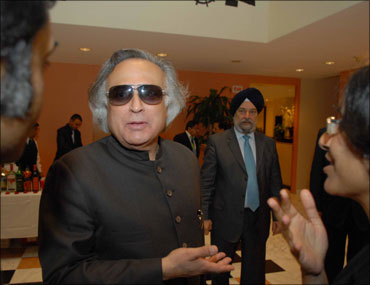

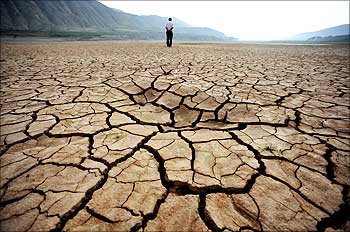

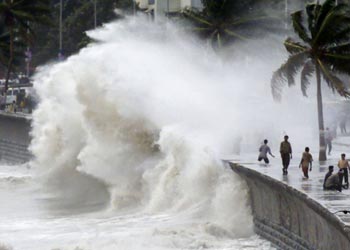
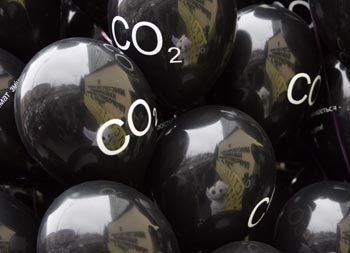
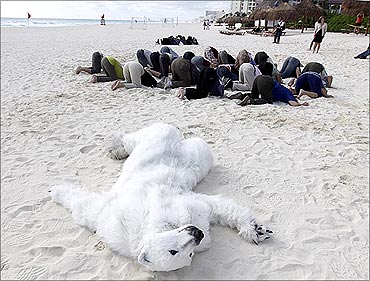

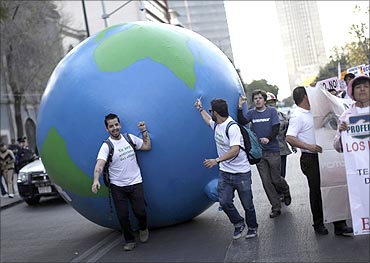
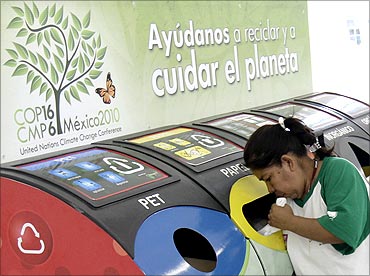


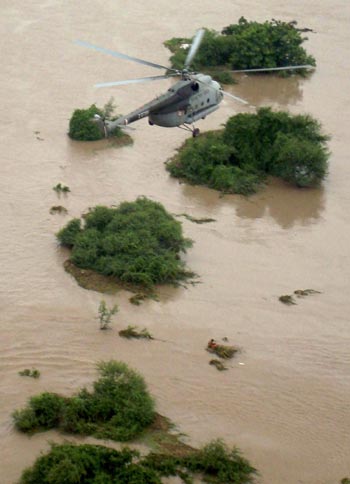
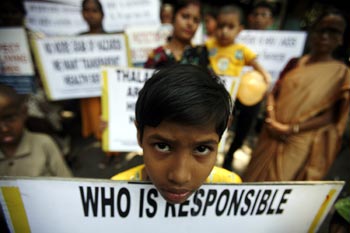
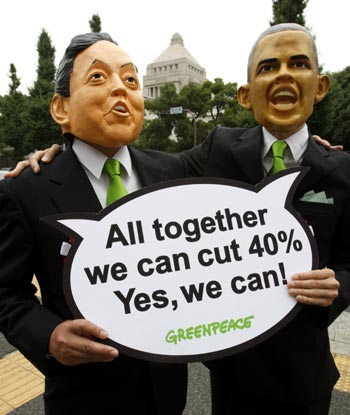
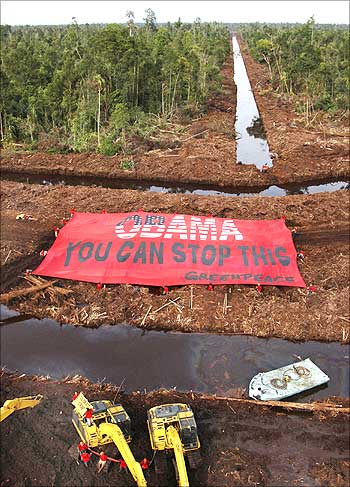

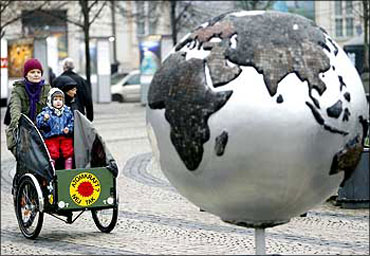
article